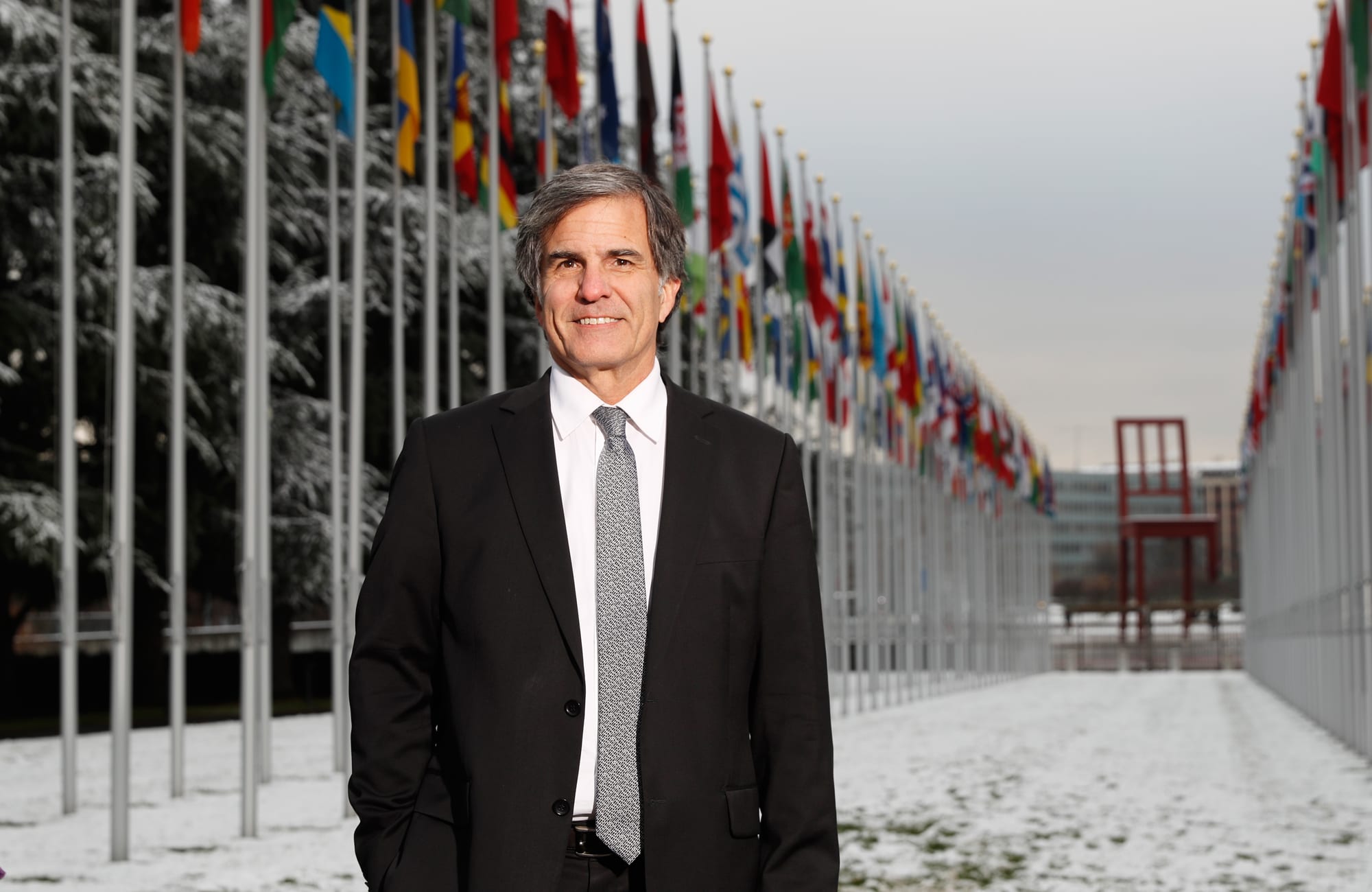
To obtain the energy to power our houses, we generally conceive of buying a certain amount of electricity from a utility company. But that’s a totally wrong way to think about it, says Scott Foster, director of the sustainable energy division of the United Nations’ Economic Commission for Europe. “You are not consuming kilowatt hours, you are consuming lighting, heating, and a movie while you eat pizza in front of the TV,” he says.
What if, instead, we bought a menu of services from the power company—for example, heat or cooling to between 68 and 70 degrees and a certain average number of hours of lighting and cooking—for a monthly fee, and it became the company’s job to figure out how to supply it. Such a system would incentivize utilities to provide better services using less rather than more energy. “The minute we do that, energy efficiency happens automatically,” says Foster.
As director of his UN division since 2011, Foster is fervent about pushing dramatic innovations in energy. “I am driven mad by the lack of logic and rationality in how things are done today,” he says. “There are things I can address through a UN platform that I can’t address through another platform.” From his perch, Foster oversees a network of governmental and private-sector stakeholders in Europe, North America, and Central Asia. Rather than using subsidies to support renewable energy, for example, he exhorts them to pursue market solutions to address climate change while fostering development.
A 30-year career in industry and as a private energy consultant and civil engineer has given Foster a unique private-sector perspective that’s different from the UN’s typical bureaucratic approach. “When you hear your average UN person speak, you often hear a lot about process and how this or that committee works, and the challenge is in achieving tangible results,” he says. Foster has mobilized his staff and generated excitement around focused goals.
In addition to rethinking energy delivery, he has also pushed for a bold revamp of international building standards. “Forty percent of carbon dioxide emissions comes from buildings,” he says. His organization is establishing centers of excellence worldwide and partnering with leading universities to research and implement new building materials and advanced methods.
To meet the organizational challenges, Foster cites the training he received at Haas through the Evening Berkeley MBA Program while he was working at Pacific Gas & Electric. Attendees were all working professionals from across a wide spectrum of industries who routinely brought real-world challenges to class. “That was a huge advantage,” he says. “The sense of perspective that gives you is extraordinary.”
In addition to teaching him organizational strategy, marketing, and other business topics, the program also transformed Foster as a public speaker, which has been invaluable as he has traveled the world to proselytize on energy issues. “If you can express your vision clearly and simply,” he says, “you can define an entire organization in a way that gets people excited and motivated to change the world.”